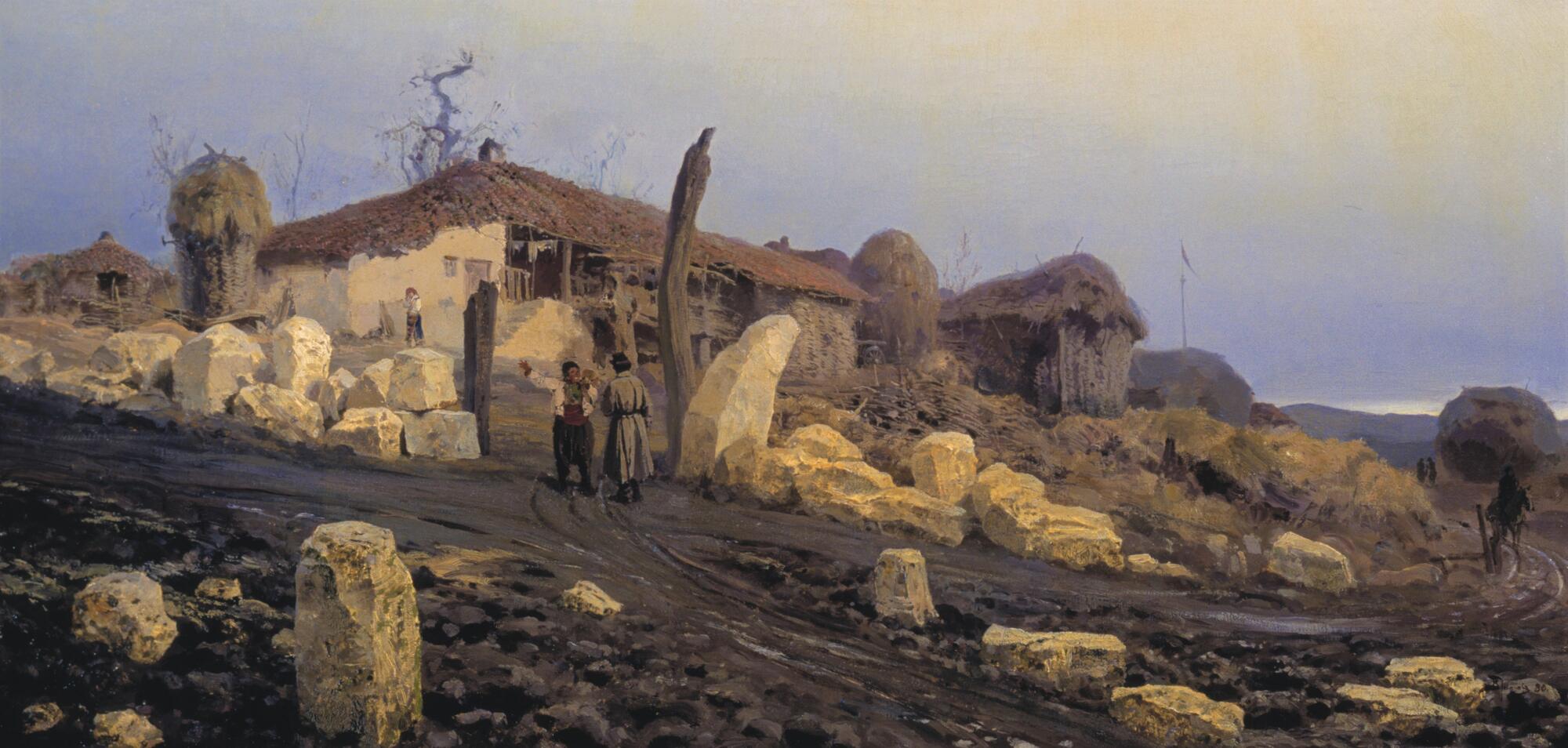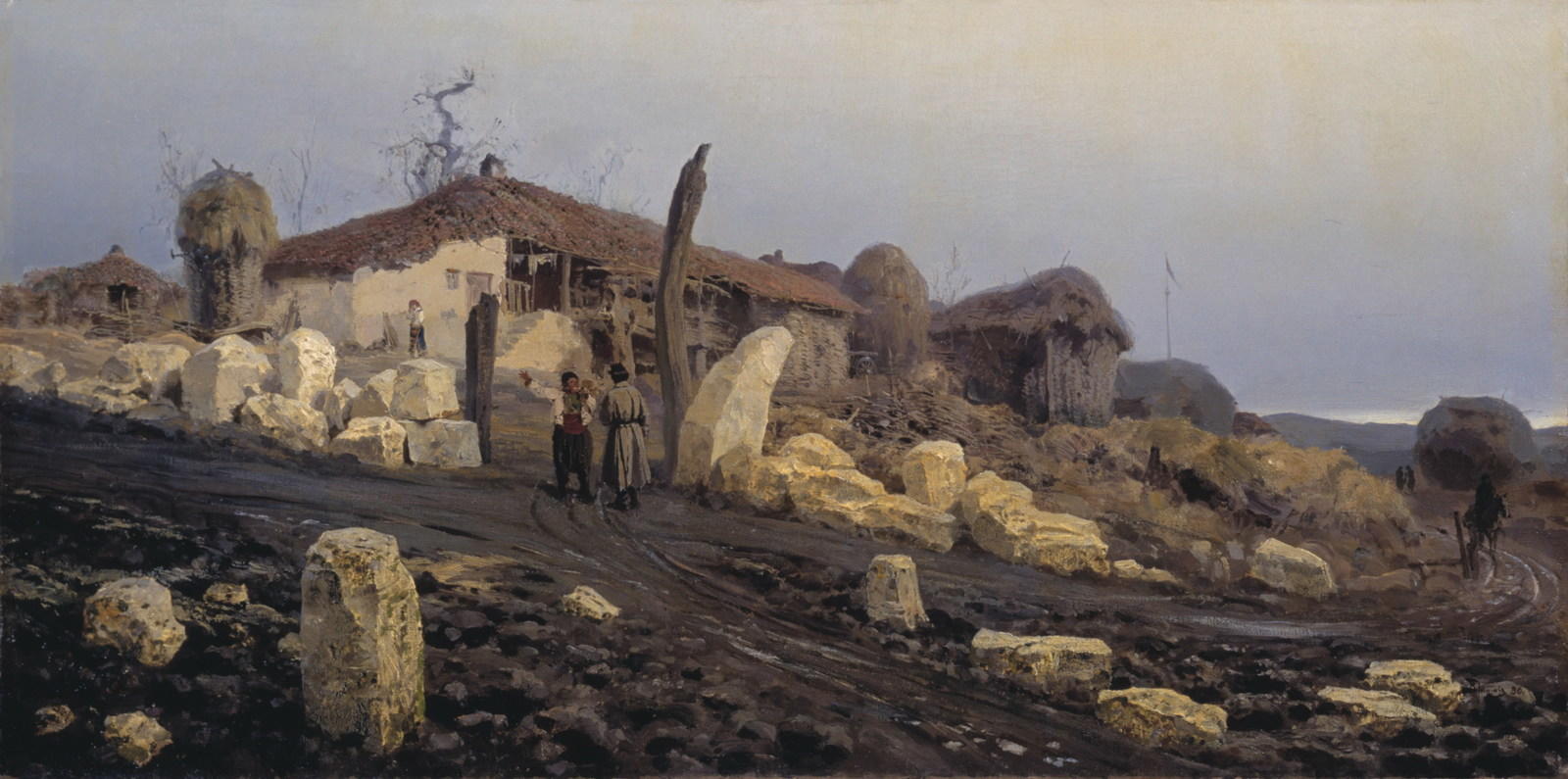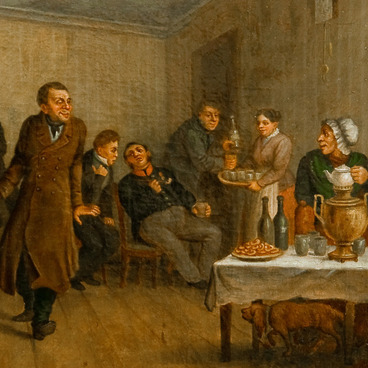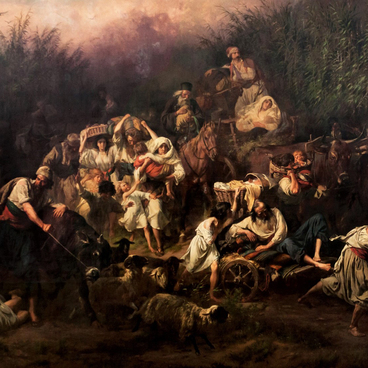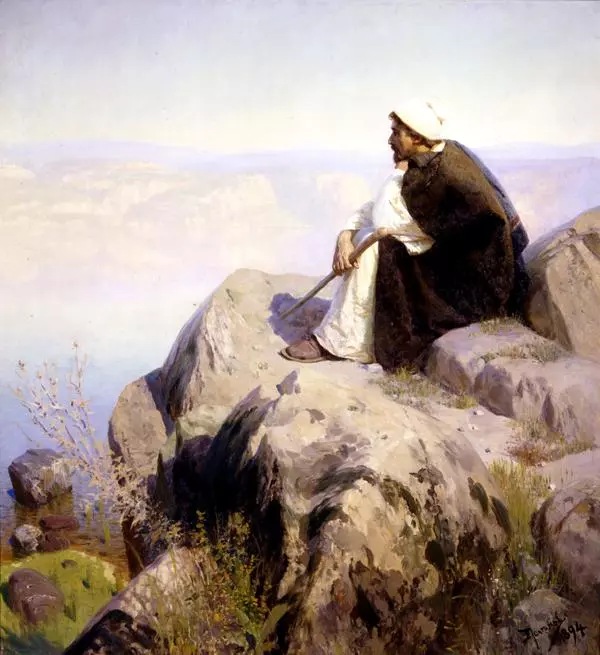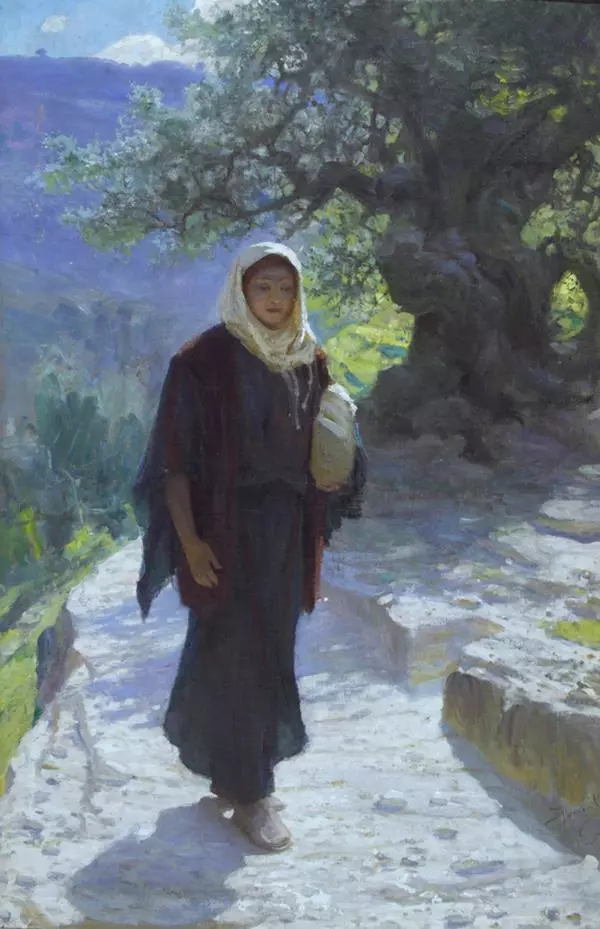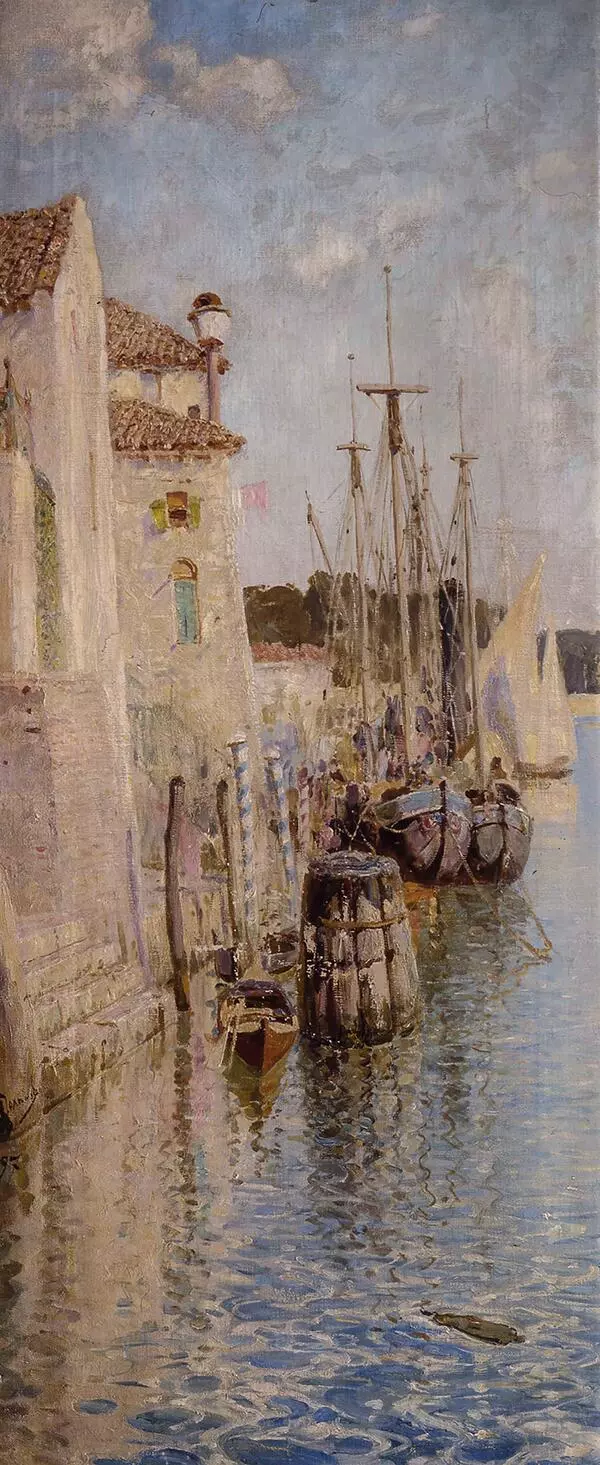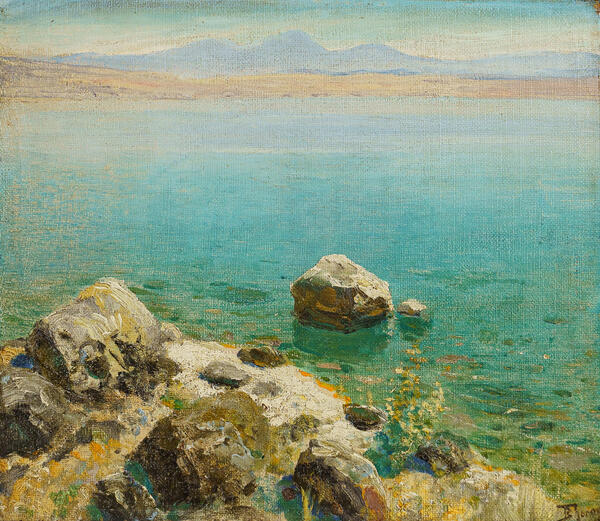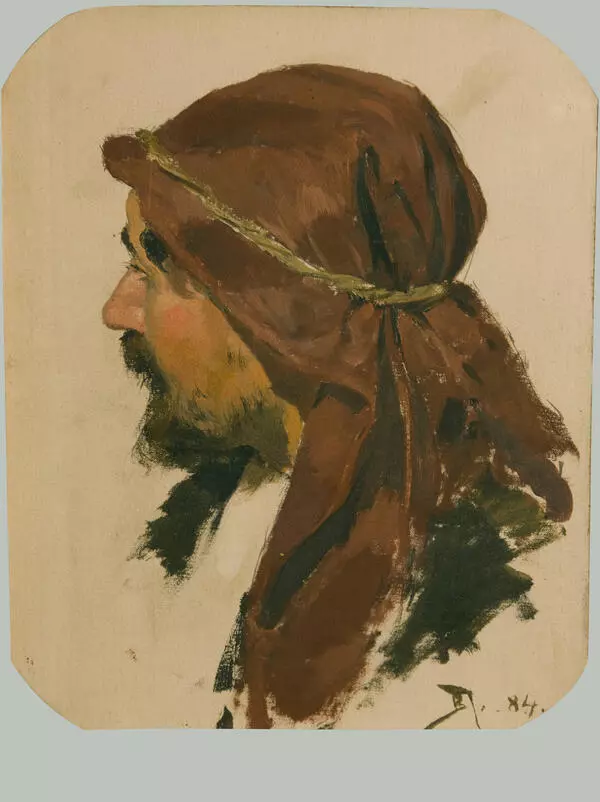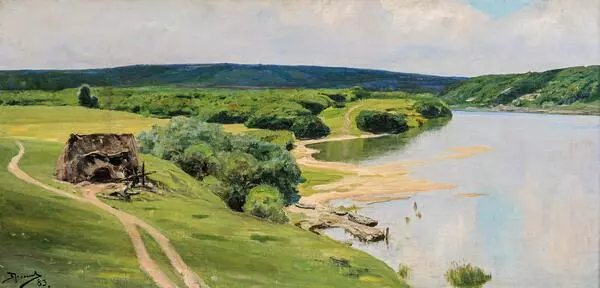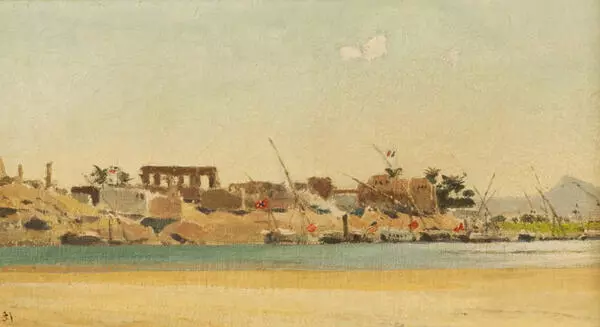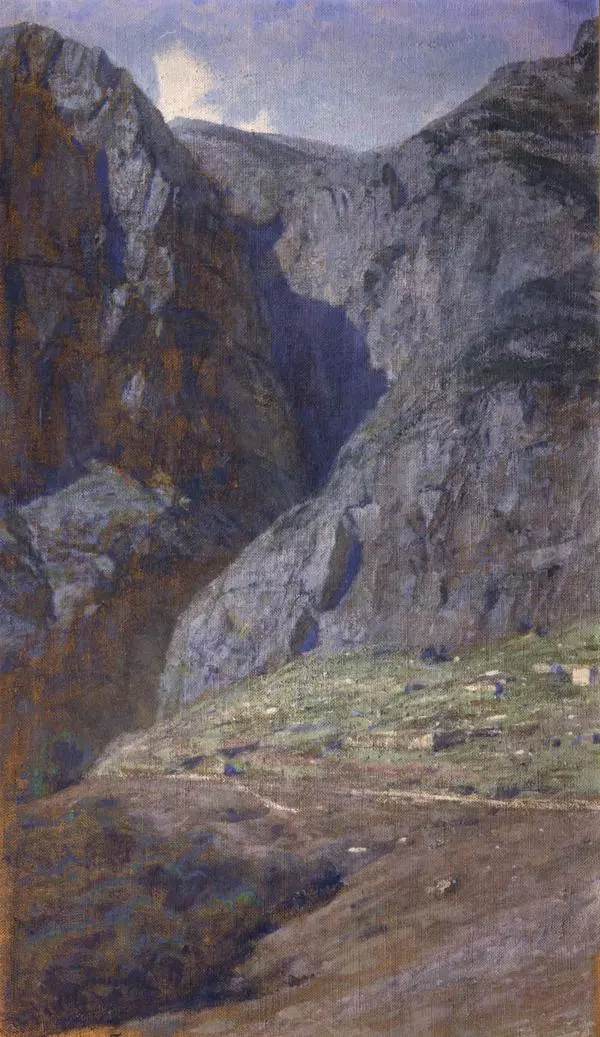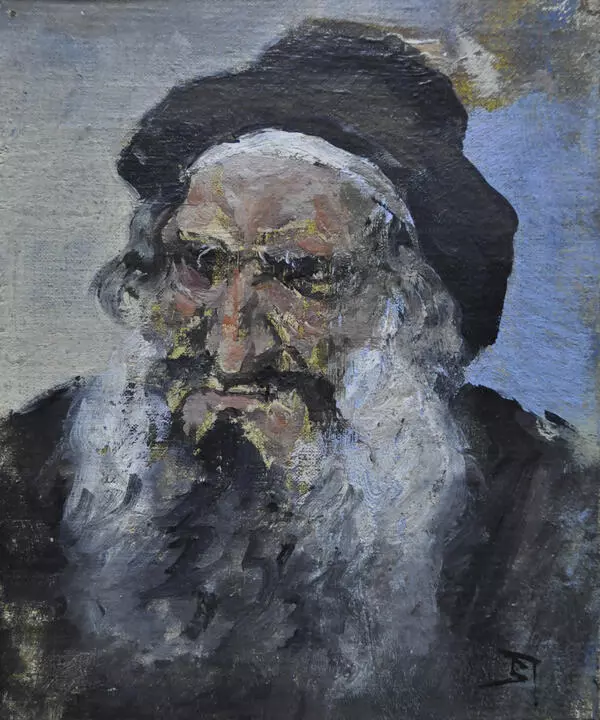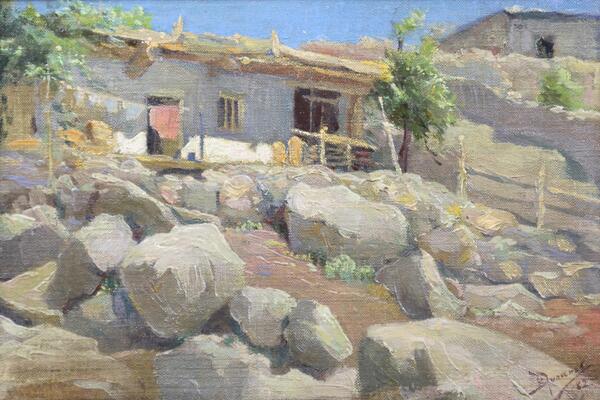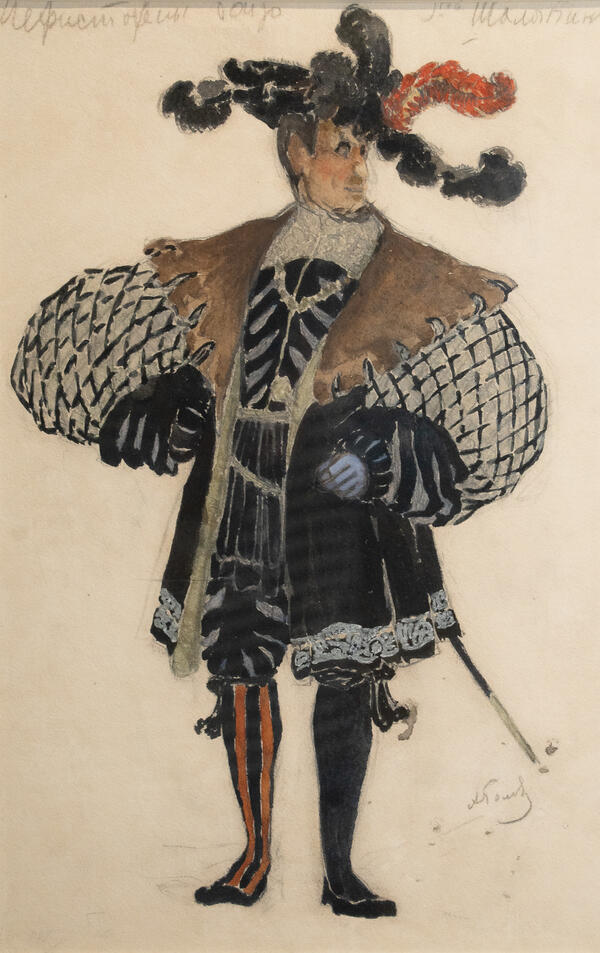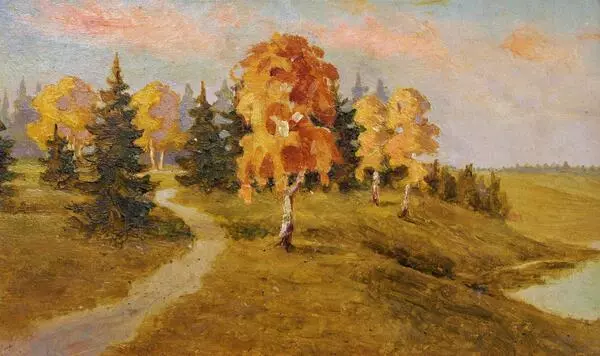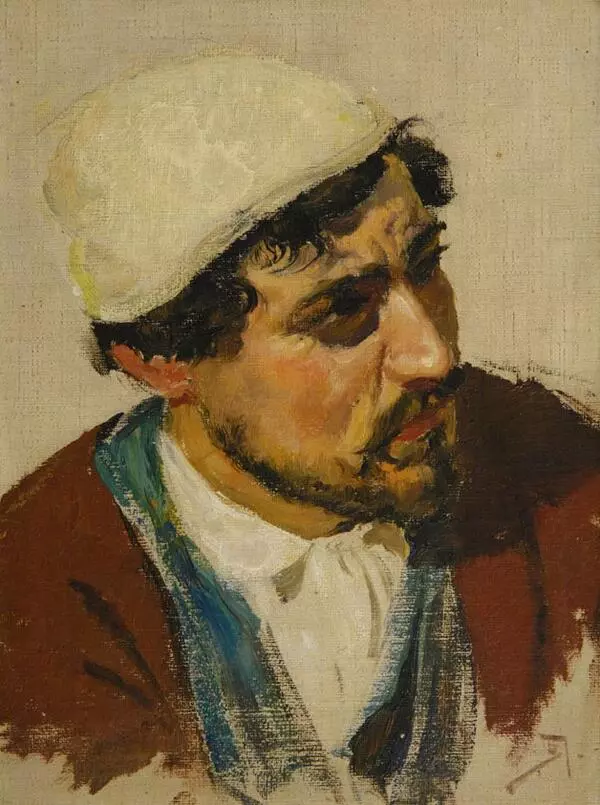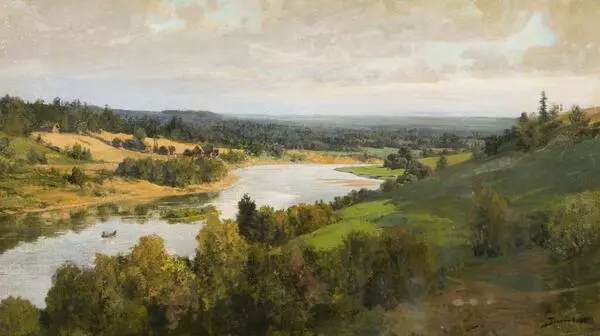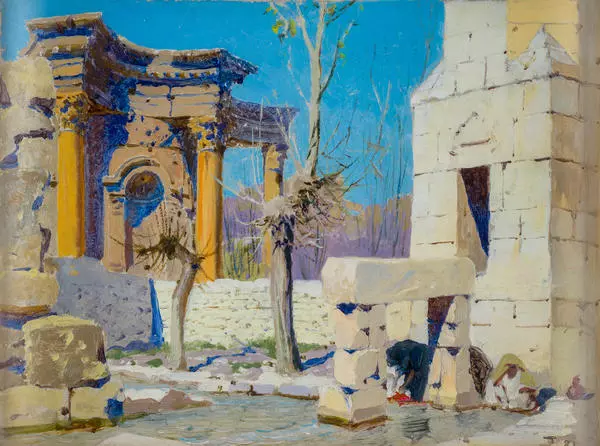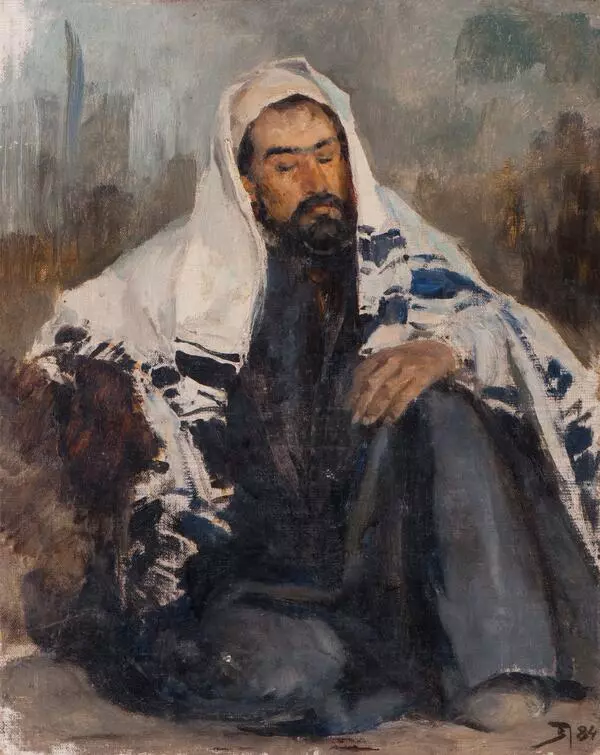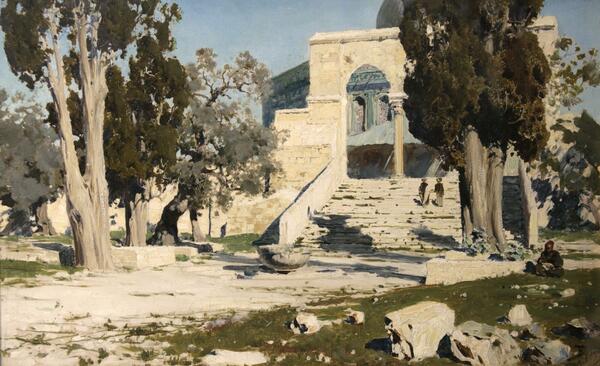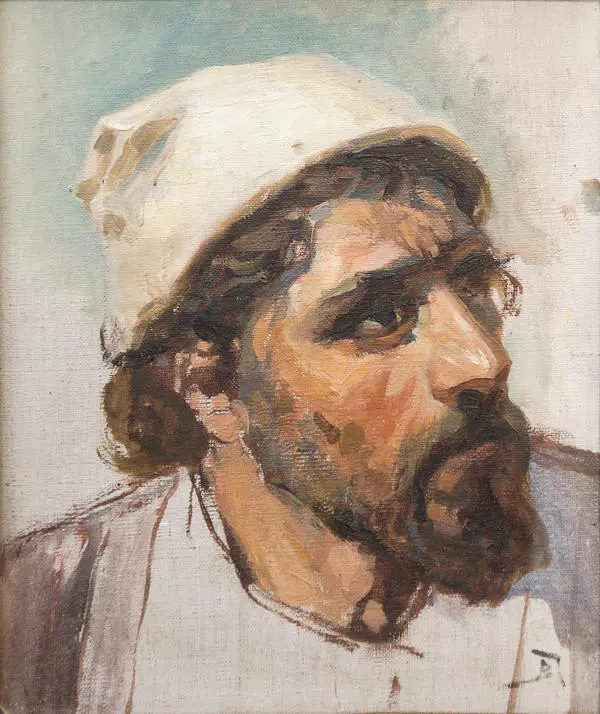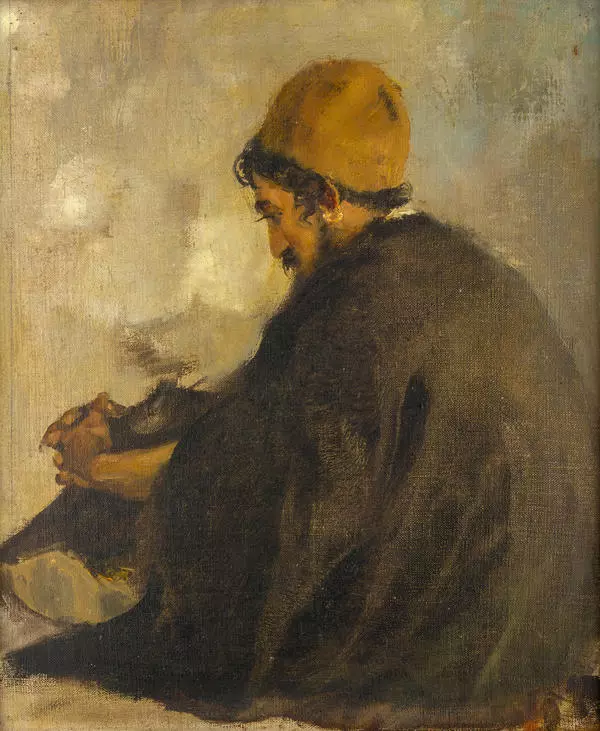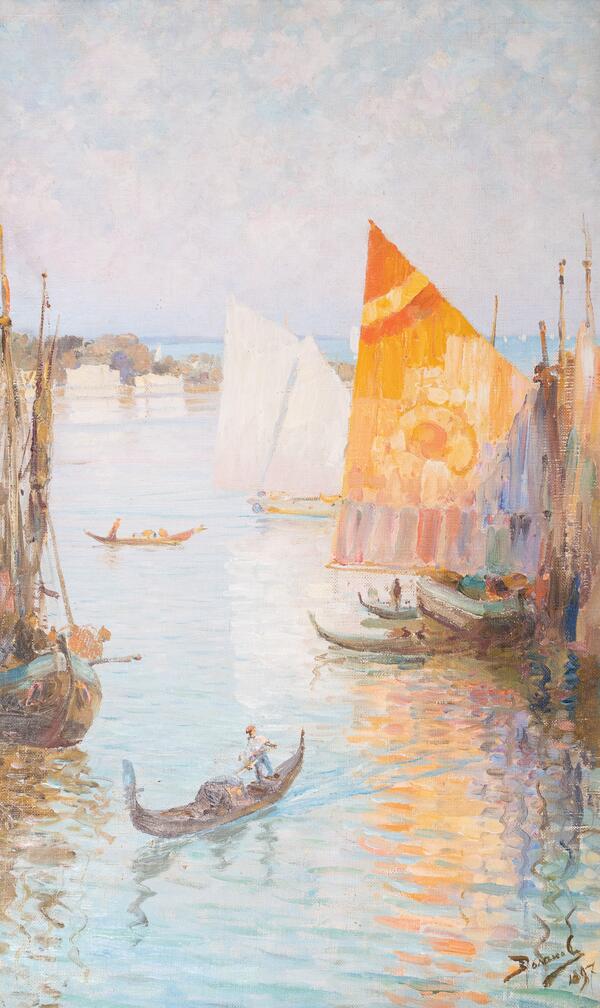The exhibition displays the painting ‘A Bulgarian Village’ by the professor of the Academy of Arts, the master of historical, landscape, and genre painting Vasily Polenov.
Polenov was an innovator in painting: he was one of the first artists to show that a plein air drawing may not be preparatory but an independent finished work.
Polenov studied at the Physics and Mathematics Faculty of the Imperial St. Petersburg University, and in the evenings, he attended the Imperial Academy of Arts as a non-matriculated student.
In 1872, he completed both courses with honors and was awarded a trip abroad at the expense of the Academy. The artist visited Vienna, Venice, Florence, Naples, lived in Paris for a long time. The visit to his homeland was short: in 1876, Polenov volunteered for the Montenegrin-Ottoman War as a front-line artist. He collaborated with the Petersburg weekly magazine ‘Pchela’ [‘Bee’], which published Polenov’s sketches under the title “From the Album of a Russian Volunteer.”
The artist created the painting “A Bulgarian Village” using the sketches made on the Russo-Turkish front. Polenov did not capture battle scenes as a matter of principle. In a letter to the Russian singer Marya Klimentova-Muromtseva, he shared his views with her:
Polenov was an innovator in painting: he was one of the first artists to show that a plein air drawing may not be preparatory but an independent finished work.
Polenov studied at the Physics and Mathematics Faculty of the Imperial St. Petersburg University, and in the evenings, he attended the Imperial Academy of Arts as a non-matriculated student.
In 1872, he completed both courses with honors and was awarded a trip abroad at the expense of the Academy. The artist visited Vienna, Venice, Florence, Naples, lived in Paris for a long time. The visit to his homeland was short: in 1876, Polenov volunteered for the Montenegrin-Ottoman War as a front-line artist. He collaborated with the Petersburg weekly magazine ‘Pchela’ [‘Bee’], which published Polenov’s sketches under the title “From the Album of a Russian Volunteer.”
The artist created the painting “A Bulgarian Village” using the sketches made on the Russo-Turkish front. Polenov did not capture battle scenes as a matter of principle. In a letter to the Russian singer Marya Klimentova-Muromtseva, he shared his views with her:
